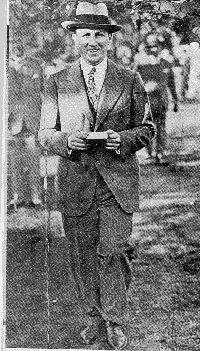×

Arnold Rothstein's attorney, William Fallon, memorably described
his client: "Arnold Rothstein is a man who waits in doorways..a mouse,
waiting in the doorway for his cheese."
Rothstein was born in 1882 in New York. His involvement in the world of gambling began at an early age. He lost interest in school when he was 16 and decided to drop out. He worked as a traveling salesman for awhile and then decided to hang out in pool halls. At age 20, he went to work for himself booking bets on horse races, baseball games, elections and prize fights. He also made loans which carried extermely high interest rates.
Rothstein received his nickname, “The Big Bankroll,” because he always insisted on carrying a huge bankroll of $100 bills. He wanted to be able to immediately finance any deals he made. In 1909, he married an actress named Carolyn Greene. 1914 was the year that Rothstein moved into the business of bookmaking. He owned a discount house for wagering and this is where he made his fortune. Rothstein once stated that he was willing to bet on anything but the weather--the weather was the only thing he could not fix.
Rothstein’s role in the 1919 World Series scandal was behind the scenes as a financial backer. His name, reputation and wealth were used to help influence the ballplayers. Rothstein was approached by two separate groups who wanted him to provide the funds to pay off the eight White Sox players. He chose to work with Joseph “Sport” Sullivan because he had a proven reputation in the gambling circle. Most believe that Rothstein placed as much as $270,000 in bets on the Cincinnati Reds to win the world series that year.
When called to testify before the grand jury, Rothstein denied all involvement with the scandal. He shifted the blame to his former associate Abe Attell. Rothstein was eventually exonerated of any wrongdoing.
In September of 1921 Rothstein announced to the world that he was through with gambling. This was an attempt to regain the anonymity he had lost because of his ties to the Black Sox scandal. He ceased all direct ownership of his gambling houses. He did not, however, move away from the world of gambling altogether. Following this move, Rothstein became involved in drug dealing, bootlegging and labor racketeering.
Rothstein was shot in the abdomen and died on November 6, 1928, at the age of 46. He had never been convicted of breaking any law during his lifetime.